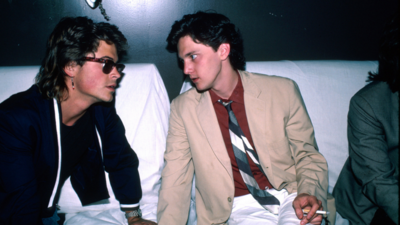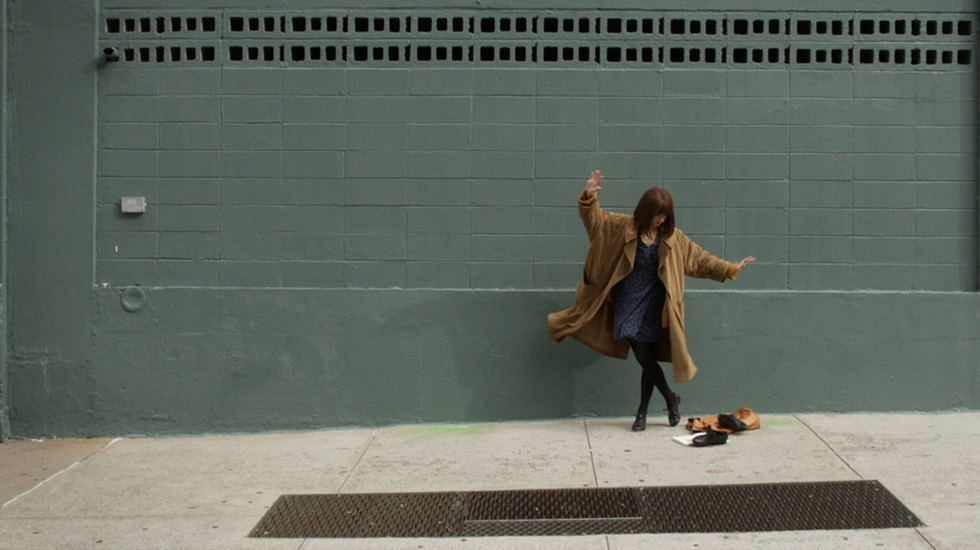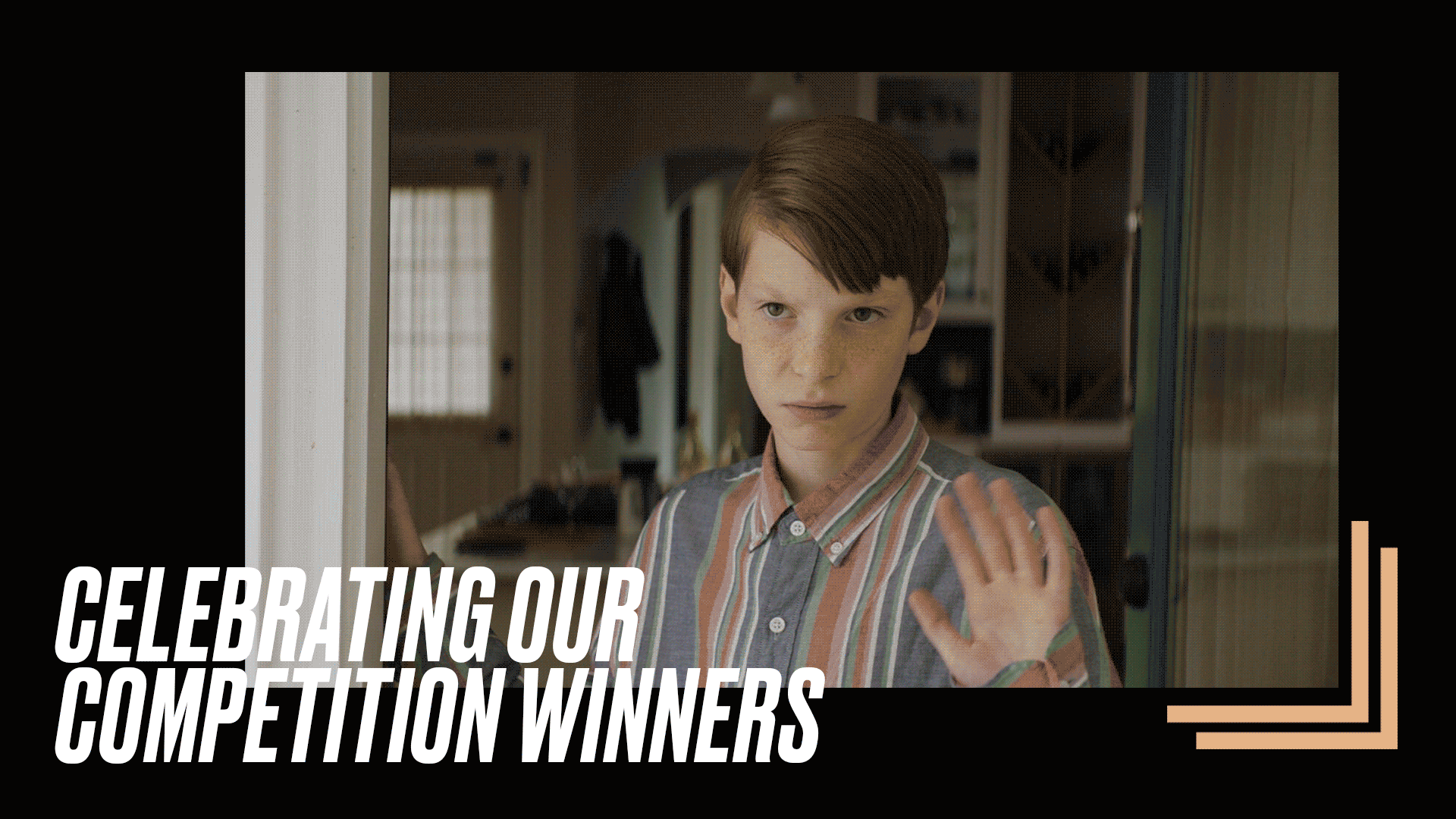
BY KAREN KEMMERLE |
‘Lily’ Co-Writer and Star Amy Grantham on Dealing with Life Post-Cancer
After winning a battle against cancer, life just goes back to normal, right? Wrong. Amy Grantham, co-writer and star of ‘Lily,’ talks about the therapeutic power of filmmaking and Tumblr.

Tribeca: Tell us a little about Lily. What inspired you to tell your own story?
Amy Grantham: What inspired Lily was my life. [laughs] When I was diagnosed with breast cancer, my first thought was not “Oh no!” It was “Boo. That really sucks.” And as the doctor’s talking, I’m like, I’m gonna start a blog about this, and so I did. I knew Matt’s [director and co-writer Matt Creed] parents but I didn’t know him. I would see him in this coffee shop a lot, and I told him what was going on and he wanted me to contact him once I felt up to it because he thought it would make kind a neat story.
We both agreed that it would be nice to focus more on what happens after you finish your treatment. For me one of the hardest parts about having cancer was when I stopped having cancer because there are all these people that are in your life every single day, like doctors and other patients, and they are just gone over night. It’s really wild. And everyone’s like, “Congratulations! You must feel so great!” Life catches up with you. I was coasting on a good two years where people would ask what was going on in my life and I would respond, “Oh, I have cancer.” I can laugh about it now, but that’s what I was doing during that time. And then when it was gone, I didn’t know what I was supposed to do. Luckily I was writing a script then so that worked out.
Tribeca: It’s not often that movie-goers are able to experience a film about life post-cancer.
AG: No, you don’t. I think that a lot of people think you should just be glad and relieved and get on with your life, but it’s so hard to do that because you’re not the same person you were before everything happened. You really go through this period of questioning who you are. I actually look different now! When I started this I had long, long hair and then obviously, I had no hair. And then some of it came back! I felt like it was really important to show that it’s equally as difficult to end your treatment and get back on with life.

Tribeca: You kept a tumblr blog during the course of your treatment and the making of the film. Was it helpful to share your story as it was unfolding?
AG: At first, I just did it because I found it was really emotionally stressful for me to take in all the news. Everything happens really fast; plus I’m young. You’re not supposed to get breast cancer when you’re my age. So everyone was a little flipped out when I got diagnosed. That same day I was scheduled for surgery, and I’d never even been in a hospital! You don’t really have time to think.
My friends and family would call asking what was going on, and it was very hard to keep repeating this very difficult information that I had not even processed yet. So I started the blog so my friends and family could check in and then call me after if they had any more questions. I thought it was important to have a place that shows what you really go through when you have cancer. I feel like most people know people who’ve had cancer but they might not really be able to understand what the experience is like. I hope that my blog has become a resource for people, and I think that’s important.
Tribeca: And how old were you when you were diagnosed?
AG: When I was diagnosed, I think I was 31, which is nuts. It’s nuts because I did yoga seven days a week. I don’t drink, I don’t smoke, and I eat organic! But as we found out, I actually have a cancer gene. That was pretty shattering because I had to wonder, “Oh, can I get this again in the next couple years?”
It’s heavy and I really wanted to show in the film how much gets piled on top of you, not just from the cancer, but from just your whole life in general.
I did find that making the film was like the closing of a chapter for me.
Tribeca: Lily looks and feels very naturalistic. How much of dialogue was actually on the page and how much improvised?
AG: That’s a tough one. A lot of it was on the page, but Matt encouraged improv too. He just kind of let me do my thing. We would sit down and talk about the framework of whatever scene we were about to do — and of course I knew what the scene was because I wrote it, so that was good. There were some lines that were really important, so we talked about keeping those, and then there were times we just agreed to stay within certain guidelines of the scene. I think that helped for us to reproduce how I felt when things were really happening. It felt more like real life that way.
Tribeca: In addition to this being part of your life story, the film also marks your first lead role
AG: This is my first! When I wrote it, I thought, “If I’m writing it, I’m stah-rring in it. “ I was joking at first, but Matt agreed to it. And then the pressure was on and I loved it. I have no idea if I did a good job or not, but it’s in Tribeca so I feel like that’s good sign!
Tribeca: I can imagine shooting on street of New York was very challenging. So what was the craziest thing that happened while you were filming?
AG: I know in one of the scenes we accidentally got John Mayer. It’s the one where I’m walking and someone honks at me, and you kind of see two dudes go by with a guitar. And I had no idea what was going on. I didn’t even really know who he was. Overall, it’s just the challenge of New York itself because New Yorkers are New Yorkers.

Tribeca: After watching the completed film, did you find the results very therapeutic?
AG: I did find it was kind of like a closing of a chapter for me. We started writing the script when I was still in treatment, so at the time I was focusing on the script as well as my health. In fact, Matt is one of the first people I showed my real hair to without a wig. The wig you see in the movie is the actual one I wore during my chemo. I think seeing it on the screen and knowing it had ended, like on the last day of filming, made everything come full circle. I felt like it was a nice way to close the book on that chapter of my life.
Tribeca: You got a clean bill of health during the production?
AG: Not exactly because I have this gene. My aunt said it best, “look at it like a chronic disease.” Where some people can go to the doctor annually, I’ll go quite a bit more for check-ups to make sure everything’s okay. I had a health scare in December when my blood count had gone back down — my white blood cells in particular — so I had to do a bone marrow biopsy, which is not fun. I never know when something is going to come up, but I still go on. You have to.
Tribeca: A thing you rarely see in movies about cancer is the billing scene.
AG: Yeah, which is horrible. It’s not like you asked to get cancer to begin with, and then one day you look down and it’s like, “wow, $30,000 that I don’t have.” It’s insane! You can get help, but it’s very overwhelming to be fighting an illness and be completely in debt and also be making no money anyway and trying to live in New York. That was a difficult part, which I hope comes across in the film. It’s one additional more stress.
Tribeca: What were your doctors’ and family’s response to making the film?
AG: They were all very excited. I have my surgeon, who’s constantly perplexed by my attitude. I really hope I made everyone proud, especially my mom and little brother. I know they already are. It was really emotional when we went back to do some of the doctor scenes, because they were at where I got my chemo. That’s where I had my first and only breakdown.
It was just so nuts to be done with everything, but then once I got back there and saw the chemo chairs and everything, it became real. That really happened. You just have to kind of step away from it when you’re going through it and then afterwards, it all came back.
You really go through this period of questioning who you are.
Tribeca: Have your doctors seen the finished film?
AG: No! I told my surgeon, my oncologist, the person who diagnosed me, the woman who was my patient navigator and everyone else to come see the film. I’d really love for them to see it because they really saved my life in a big way. Everybody acted so quickly. I had no insurance when this started, and everyone helped me out. I owe a lot to them.
Tribeca: What are you most looking forward to at Tribeca?
AG: Just being there and the excitement of it all. I love New York. I’m from Tallahassee originally so it’s very different. My vision of New York was very cinematic before I moved here, from watching Manhattan and all these films that made me think of it as this wonderful place to be. So for me, this is kind of what it’s all about. Tribeca’s so much a celebration of New York and the culture here and the wonderful cinema that has come out of here. I’m just most excited to be a part of it and even walking around in it, and hopefully get to see lots of movies!
Tribeca: What makes Lily a Tribeca must-see?
AG: It’s a must-see film because it’s something everyone can relate to, about being at a point in your life where you’re not sure what you’re doing , or if you made the right decisions, or how you even got there. Lily takes time to stop and evaluate herself while making some hard but brave choices. All in all, it’s very human.
Lily premieres Saturday, April 20, at the Clearview Cinemas Chelsea. For more information and additional showtimes, please visit our Film Guide listing.

